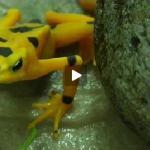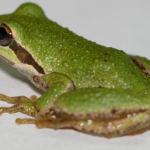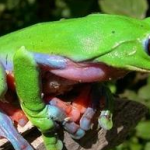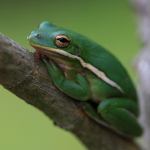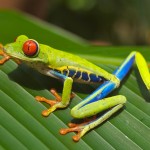Order Anura: Frogs
Frogs are amphibians in the order Anura (meaning “tail-less”, from Greek an-, without + oura, tail), formerly referred to as Salientia (Latin salere (salio), “to jump”). Most frogs are characterized by long hind legs, a short body, webbed digits (fingers or toes), protruding eyes and the absence of a tail. Frogs are widely known as exceptional jumpers, and many of the anatomical characteristics of frogs, particularly their long, powerful legs, are adaptations to improve jumping performance.
Due to their permeable skin, frogs are often semi-aquatic or inhabit humid areas, but they move easily on land. They typically lay their eggs in puddles, ponds, or lakes, and their larvae, called tadpoles, have gills and develop in water. Adult frogs follow a carnivorous diet, mostly of arthropods, annelids, and gastropods. Frogs are most noticeable by their call, which can be widely heard during the night or day, mainly in their mating season.


